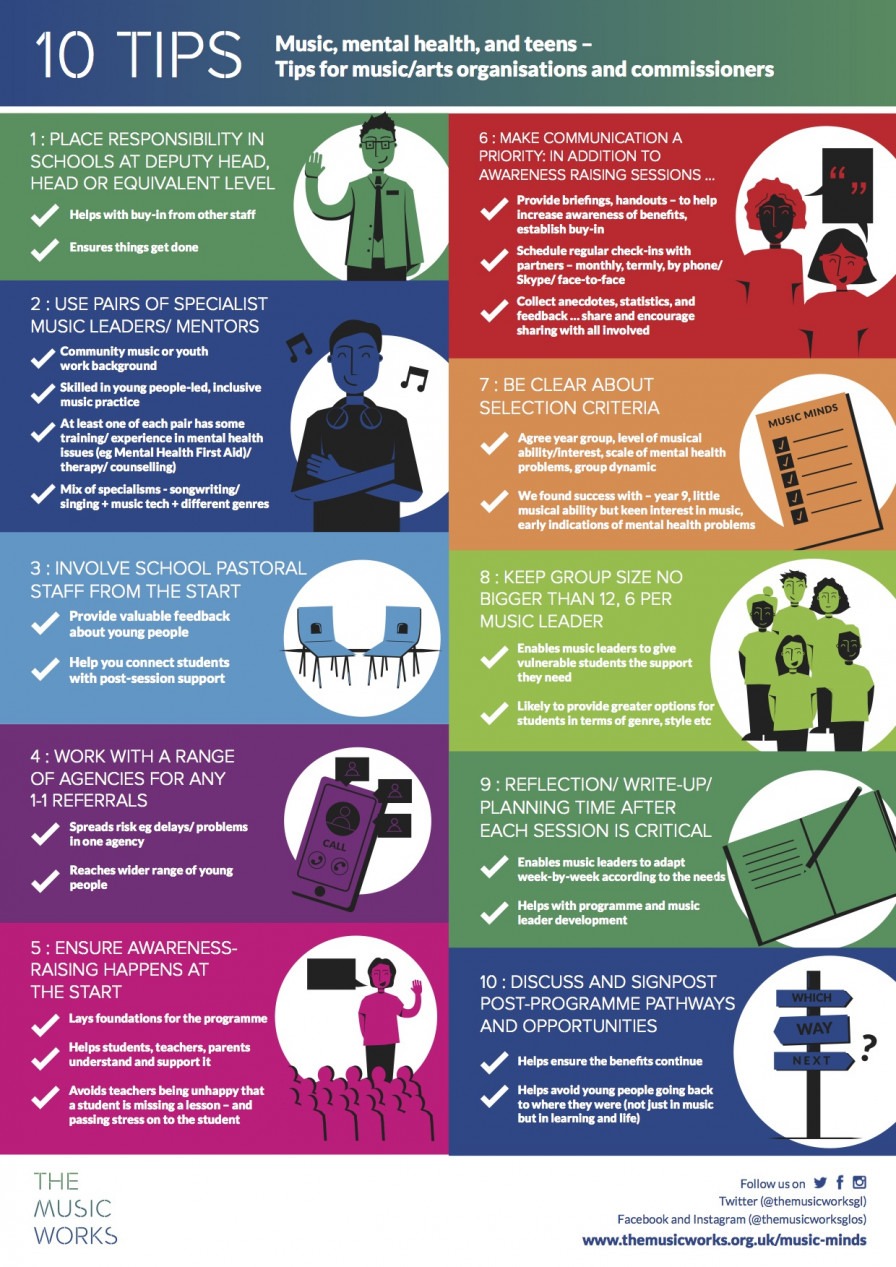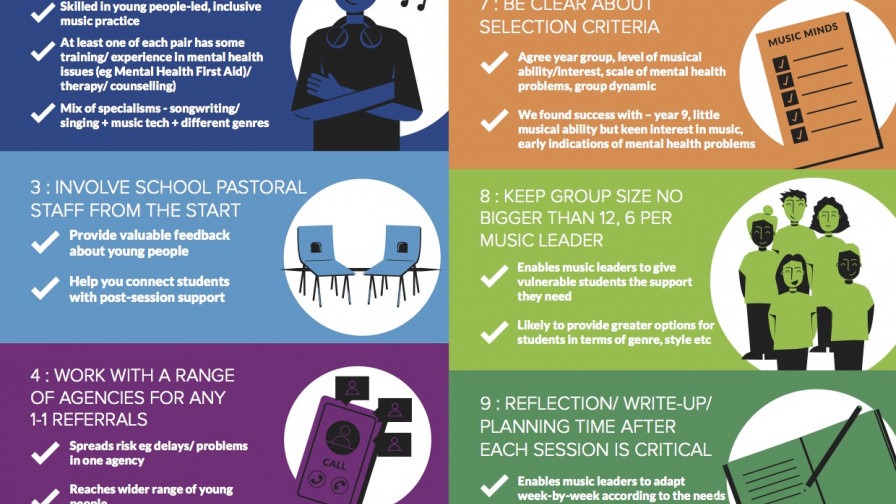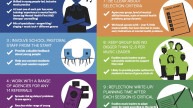Music Minds mental health programme for teenagers - top tips for musicians and schools/ commissioners

In this third blog of a series about The Music Works' Music Minds mental health programme for teenagers, I'm sharing a second infographic summarising our 'top tips for music/arts organisations and commissioners' including schools, and health commissioners.
Read the previous blogs:
Music Minds - what I've learned so far by Misha Law, music leader Music Minds - practice sharing video and infographic
Download the full Top Tips infographic from the links on this page or on our Music Minds webpage (see box towards bottom of page)
Read more about the programme below (taken from a case study written for the Make Music Gloucestershire music education hub annual report):
Music Minds is a music-based mental health programme for teenagers, run by The Music Works and piloted in two schools in Gloucestershire: Barnwood Park, and Severn Vale. It helps young people to cope with problems such as stress, anxiety and depression; and behaviours such as self-harm, aggression and eating disorders. It does this by empowering students to consciously use music to help with self-expression, self-awareness, relaxation and mindfulness.
The programme is funded by Youth Music, NHS Gloucestershire Clinical Commissioning, Gloucestershire Health Living and Learning and Make Music Gloucestershire and has been part of a national action research programme looking at how arts interventions could be commissioned as part of NHS services.
The first phase of findings has shown that Music Minds has made a significant difference to young people’s mental wellbeing. 96% of participants said the programme had indirectly helped their problems; 42% said it had helped quite a lot or a great deal; 37.5% said their problems had improved.
One young person was rock bottom in self-esteem. There were serious concerns about her behaviour, and she was in the top five of students in her school with the most challenging behaviour. Now, she is no longer a concern at all and staff attribute this change to Music Minds.
One of the important aspects of Music Minds is that is has been shaped by young people and teachers as it has progressed. Termly focus groups with students and teachers, where they share their experiences and ideas to help us to adapt and improve the programme. These sessions have shown that participants are taking conscious decisions to express or manage their feelings through music:
“I get angry really easily. With music, I end up singing to it and it just calms me down. It is a way to vent without physically venting.”
“Music Minds has helped me. When I’m stressed I listen to music. And I put down the words that are making me feel stressed.”
“I never really lashed out on other people but I’d punch a wall until my hands were physically bleeding. I’d isolate myself and block out everyone. I’d do everything I could to punish myself. This has shown me that I’m not the only one feeling this. I have major trust issues. This has helped me talk to people more. I can take everything I’m feeling and do it in a productive way through music.”
They’ve said that their relationships have improved, they’re feeling better about themselves and they’re more able to cope with problems:
“I didn’t really know what people were like until Music Minds. I wouldn’t usually talk to people who weren’t my friends, I used to … not be mean exactly … but ignore them, and now listening to other people’s problems, I think, I could have been nicer, why wasn’t I nicer?”
“At the start of Music Minds I didn’t really take part, but by the end I’d grown in confidence, I found spoken word … If I feel like I’m stressed I use spoken word, and I wouldn’t have done before …. It helps.”
“It takes your mind off stress, it relieves you from, not your problems, they’re still there, it takes the ease off stress and expectations. Now we’re starting our GCSEs, there are a lot of expectations, a lot of pressure. In Music Minds you don’t need to make it A* grade, it can be whatever you want, you don't have to do certain stuff to make it ‘right’.”
The increasing pressures on youth and mental health services has meant that many young people are slipping through the gap and aren’t getting the support they need. Music Minds is a means to reach those young people, and empower them to help themselves before their problem becomes a crisis.


